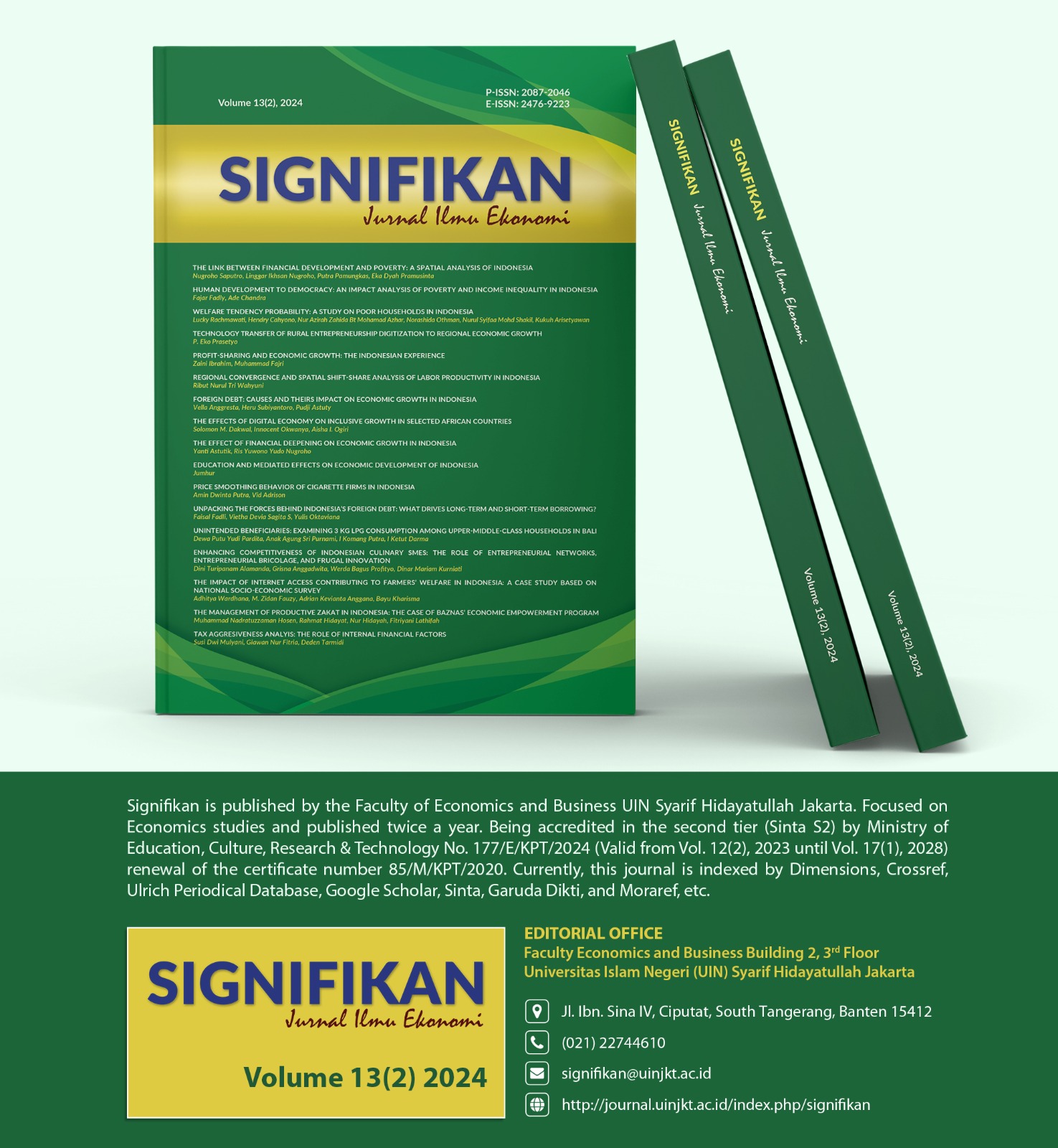The Management of Productive Zakat in Indonesia: The Case of Baznas’ Economic Empowerment Program
DOI:
https://doi.org/10.15408/sjie.v13i2.42673Keywords:
empowerment, mustahik welfare, maqashid shariah, productive zakat, sustainableAbstract
Research Originality: This study contributes to the gap in the literature on the empowerment process in measuring the success history of zakat management.
Research Objectives: This research aims to measure the factors influencing the improvement of Mustahik's welfare through a mediating variable, namely, the empowerment process.
Research Methods: This research uses mixed-method analysis through quantitative and qualitative approaches. Quantitative approach using SEM-PLS.
Empirical Results: The study's findings show that the empowerment process is a mediating variable capable of providing more substantial value and a favorable influence on Mustahik welfare, depending on input factors such as zakat funds and mentorship at the individual, organizational, and community levels. Meanwhile, the Z-Chicken initiative had no substantial positive influence on Mustahik's welfare.
Implications: The study's findings indicate the necessity of assessing Baznas' management of distribution programs to improve the empowerment process, primarily via the community empowerment method.
JEL Classification: I30, I31, O12


